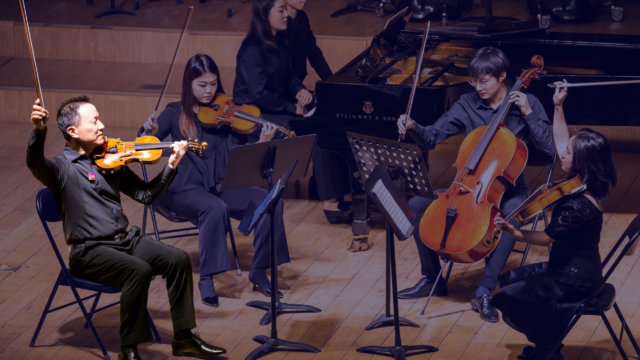Signs of Spring: Cherry Blossoms and D.C. Policy Updates
March 23, 2022
In This Issue
- NEA and Arts Education Funds Increase for Fiscal Year 2022
- Continued Calls for Relief as Research Charts COVID-19’s Impact on the Arts
- League Speaks Up on Travel with Musical Instruments
- Charitable Giving and Nonprofit Sector Take Spotlight in Senate Hearing
NEA and Arts Education Funds Increase for Fiscal Year 2022
Last week, President Biden signed into law a $1.5 trillion spending bill to fund the federal government through September 2022. The National Endowment for the Arts (NEA) and National Endowment for the Humanities are receiving a boost to a funding level of $180 million each, which is the NEA’s highest allocation without accounting for inflation. The Assistance for Arts Education program at the U.S. Department of Education also received a $6 million increase for an allocation of $36.5 million.
With the current fiscal year’s funding now settled, the Administration is expected to release its budget requests for FY23 next week, and there is no shortage of opportunities for the League and for orchestra advocates to let Congress know how it can support the arts sector. The League has submitted written testimony to the House Appropriations Subcommittee on the Interior to support an increase in NEA funding for FY23, describing the impact of NEA grants on orchestras and the arts engagement they provide communities.
Continued Calls for Relief as Research Charts COVID-19’s Impact on the Arts
The newest data on the economic impact of the art sector is included in the latest report of the Arts and Cultural Production Satellite Account, released this week by the Bureau of Economic Analysis and the National Endowment for the Arts. The report illustrates the toll of the COVID-19 pandemic on the live performing arts sector, while also charting the important role of the arts in our nation’s economic recovery. Among the notable findings are that, “Performing arts presenters and performing arts companies joined oil drilling/exploration and air transportation as the steepest-declining areas of the U.S. economy in 2020.”
Orchestras and other arts advocates continue to call on the federal government to maximize COVID-19 relief and enact policies that invest in the capacity of the arts. The FY22 omnibus legislation passed this month did not include restoration of the 4th quarter of the Employee Retention Tax Credit, which orchestras have been pressing Congress to reinstate, nor did the bill include an extension to allow more time for Shuttered Venue Operators Grants program recipients to expend their awards. These and other top policy priorities are gaining bipartisan support but will require a new legislative vehicle in order to gain momentum in Congress. Thank you for your continued advocacy!
League Speaks Up on Travel with Musical Instruments
The return of performances that cross borders and the rhythm of international policy talks have both brought the League back to the table to represent global music interests in the Convention on International Trade in Endangered Species (CITES), which sets policies for how musicians can travel with instruments that contain rosewood, reptile skin wrapping, tortoise-shell embellishments, and small bits of ivory. In partnership with the National Association of Music Merchants (NAMM), the League participated in negotiations in Lyon, France last week, advancing policy requests to improve the Musical Instrument Certificate, and encourage ongoing exemptions for activity with musical instruments that does not pose a threat to the conservation of species now under the protection of international treaties. Orchestras and guest artists can learn more about the rules for travel with musical instruments in the League’s Protected Species Travel Tips.
Charitable Giving and Nonprofit Sector Take Spotlight in Senate Hearing
In written testimony submitted to the Senate Finance Committee, the League is calling on Congress to expand charitable giving incentives and enact urgently-needed policies to support orchestras and the wider nonprofit sector. In a March 17 hearing titled, “Examining Charitable Giving and Trends in the Nonprofit Sector,” bipartisan members of the leading tax policy committee in the Senate expressed support for reinstating and expanding the Universal Charitable Deduction, which expired at the end of 2021. Orchestras can continue to speak up to describe how their nonprofit missions advance vibrant artistry, community partnerships, and a commitment to lifelong learning through music, and to ask for Congressional action on tax policies that will support the orchestras and their workforce.
Related
-
Learn | Governance
Spotlight: Sarah Generes
-
Learn | Travel with Instruments
Know Your Bow: New Rules and Essential Steps for Pernambuco Sustainability
Become a member
Thank you for your interest in the League of American Orchestras! We are dedicated to advancing the orchestral experience for all.
Join Now
